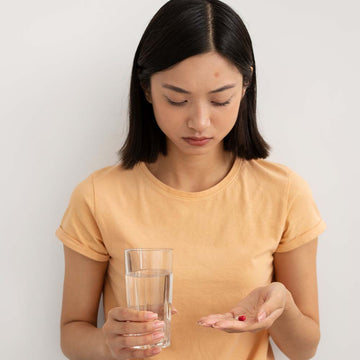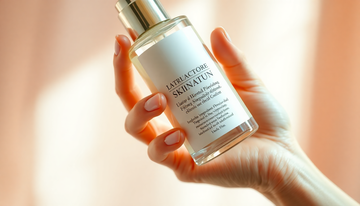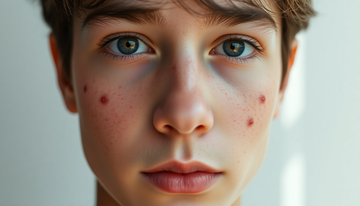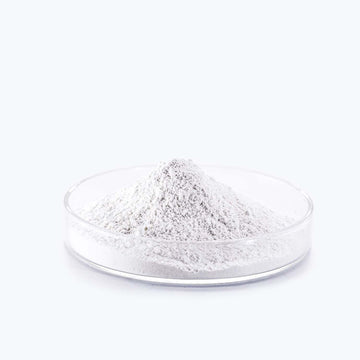Many individuals turn to birth control not only as a contraceptive method but also as a treatment for acne. Understanding how birth control affects hormone levels and its efficacy in managing acne is crucial for those seeking relief from this common skin condition.
1.How Birth Control Affects Hormone Levels
a.Estrogen and Progesterone Dynamics
Most birth control methods work by altering hormone levels in the body, primarily estrogen and progesterone. By modulating these hormones, birth control can regulate menstrual cycles and prevent pregnancy. However, certain hormonal changes can also impact acne development.
2.Types of Birth Control Methods and Their Impact on Acne
a.Combined Oral Contraceptives (COCs)
Combined oral contraceptives contain synthetic forms of estrogen and progestin and are often prescribed to regulate hormone levels and reduce acne severity. They work by suppressing androgens, hormones that stimulate sebum production and contribute to acne formation.
b.Progestin-Only Pills
Progestin-only pills, also known as mini-pills, contain only progestin and may have variable effects on acne. While some individuals may experience improvements in acne with progestin-only pills, others may notice worsened symptoms due to the progestin's androgenic properties.
c.Hormonal IUDs
Hormonal intrauterine devices (IUDs) release progestin locally in the uterus, resulting in minimal systemic hormonal effects. While hormonal IUDs are not typically prescribed specifically for acne treatment, some individuals may experience improvements in acne as a secondary benefit.
d.Depo-Provera Injections
Depo-Provera injections contain a progestin called medroxyprogesterone acetate and provide long-lasting contraception. While Depo-Provera may improve acne for some individuals by suppressing ovarian function, it can also cause hormonal fluctuations that exacerbate acne in others.
3.Mechanisms of Action for Acne Treatment
a.Regulation of Sebum Production
One of the primary mechanisms through which birth control treats acne is by regulating sebum production. By suppressing androgens and increasing estrogen levels, birth control can reduce sebum secretion, preventing pores from becoming clogged and inflamed.
b.Suppression of Androgens
Androgens, such as testosterone, play a significant role in acne development by stimulating sebum production and increasing pore size. Birth control methods that suppress androgens or block their effects can help alleviate acne symptoms by reducing oiliness and preventing breakouts.
5.Effectiveness of Birth Control in Treating Acne
a.Efficacy of Different Birth Control Methods
The effectiveness of birth control in treating acne varies depending on the individual's hormonal profile, acne severity, and response to specific formulations. While some individuals may experience significant improvements in acne with certain birth control methods, others may not see noticeable changes.
b.Factors Influencing Treatment Outcomes
Several factors can influence the effectiveness of birth control in treating acne, including the type of hormones used, the duration of treatment, and the presence of other contributing factors such as genetics, lifestyle, and skincare habits.
6.Considerations Before Using Birth Control for Acne
a.Potential Side Effects and Risks
While birth control can be an effective treatment for acne, it's essential to consider potential side effects and risks associated with hormonal contraception, such as weight gain, mood changes, and increased risk of blood clots.
b.Contraindications and Medical History
Before starting birth control for acne, individuals should discuss their medical history and any pre-existing conditions with their healthcare provider. Certain health conditions, such as a history of blood clots or migraines with aura, may contraindicate the use of certain birth control methods.
7.Lifestyle Factors and Complementary Treatments for Acne
In addition to birth control, adopting a healthy lifestyle and incorporating complementary treatments can enhance acne management. Strategies such as maintaining a balanced diet, practicing good skincare hygiene, managing stress, and avoiding pore-clogging products can complement the effects of birth control in preventing breakouts.
Conclusion
Birth control can be an effective option for managing acne by regulating hormone levels and reducing sebum production. However, it's essential to weigh the potential benefits against the risks and consider individual factors before initiating treatment. By working closely with a healthcare provider and adopting a comprehensive approach to skincare, individuals can achieve clearer, healthier skin.
Frequently Asked Questions (FAQs)
1.How long does it take for birth control to clear acne?
The timeline for acne improvement with birth control varies depending on the individual's hormonal response and acne severity. Some individuals may notice improvements within a few months, while others may require longer-term treatment.
2.Can birth control make acne worse before it gets better?
In some cases, birth control can initially exacerbate acne symptoms before improving them. This is often due to hormonal fluctuations as the body adjusts to the new medication. However, acne typically improves with continued use of birth control.
3.Are there non-hormonal options for treating acne?
Yes, several non-hormonal treatments are available for acne, including topical medications, oral antibiotics, and isotretinoin. These options may be suitable for individuals who cannot use hormonal contraception or prefer non-hormonal treatments.
4.What should I do if birth control doesn't improve my acne?
If birth control does not effectively manage acne symptoms, it's essential to consult with a healthcare provider for further evaluation and alternative treatment options. Additional interventions, such as topical medications or dermatological procedures, may be recommended.
5.Are there natural remedies for acne that I can try alongside birth control? While natural remedies may complement acne treatment, such as maintaining a healthy diet, practicing good skincare hygiene, and using non-comedogenic products, it's essential to consult with a healthcare provider before combining them with birth control to ensure safety and effectiveness.




